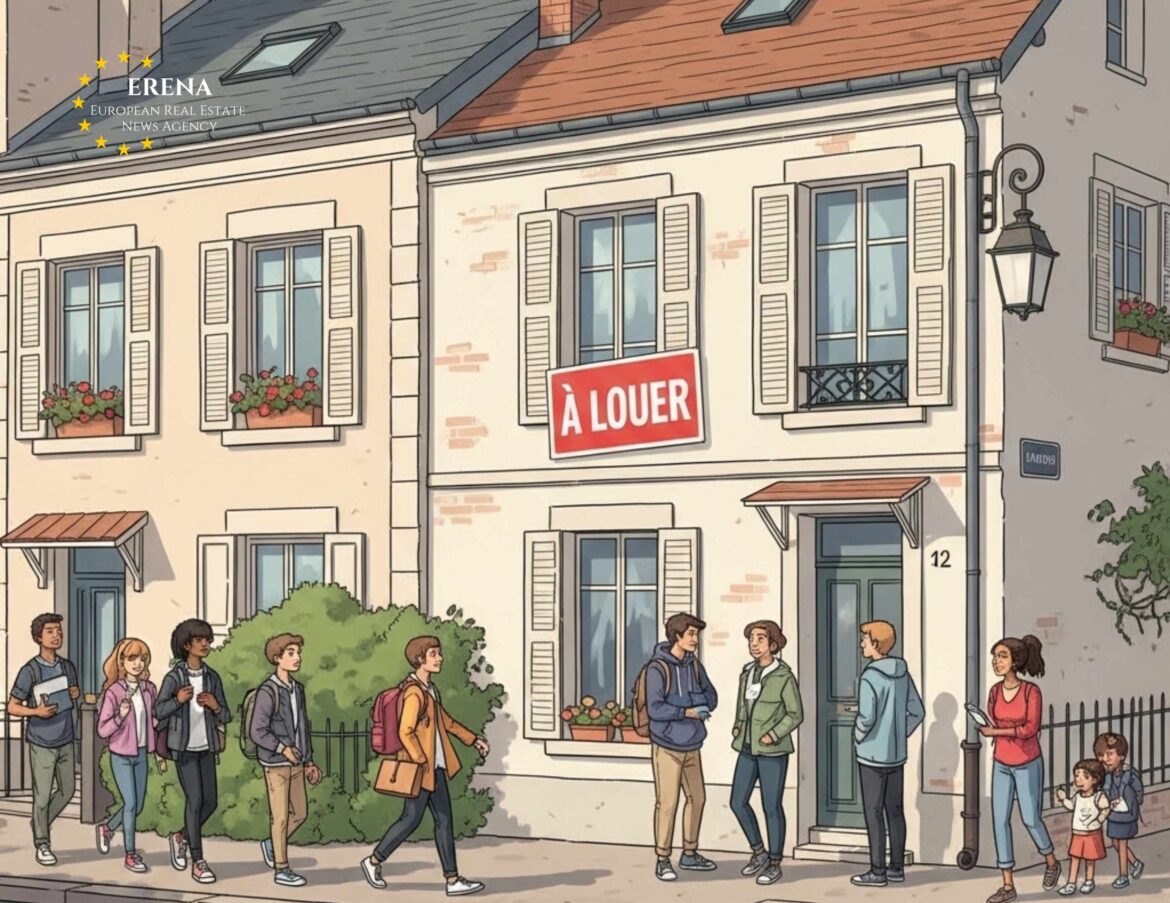The city of Besançon, located in the Bourgogne–Franche-Comté region in eastern France, continues to maintain one of the most stable rental markets in the country. Despite nationwide shifts in housing policy, price increases, and a growing trend toward suburban living, rental demand in this historic and university city remains consistently high. The local real estate market shows steady activity, particularly in both short- and long-term rental segments, making Besançon attractive to both tenants and property investors.
Geographic and Urban Appeal
Besançon is home to around 120,000 residents, with a broader metropolitan area reaching up to 250,000. Nestled in a loop of the Doubs River and surrounded by hills, it sits close to the Swiss border, positioning it strategically between France, Germany, and Switzerland. The city boasts a well-preserved historical center — including Roman-era monuments and UNESCO-listed fortifications — alongside modern districts, residential neighborhoods, and innovation parks.
This diversity provides a wide range of housing options and appeals to a broad rental audience, from students and young professionals to families and cross-border commuters.
Education and Scientific Infrastructure
One of the primary drivers of sustained rental demand is the presence of the University of Bourgogne–Franche-Comté, which hosts tens of thousands of students each year. The influx includes both French nationals and international students in search of affordable and practical accommodation.
In addition to the university, Besançon is home to engineering and medical schools, as well as renowned research centers in microtechnology and biomedical science. This results in a continuous flow of students, lecturers, PhD candidates, and technical staff — all of whom require rental housing.
Medical and Military Presence
Besançon serves as a major medical hub for the region, anchored by the university hospital CHRU and several private clinics. The demand for housing is bolstered by medical professionals — from interns and residents to nurses and technicians — many of whom rent for the duration of their placements or contracts.
Furthermore, the city has a long-standing military presence, with gendarmerie and army bases. Soldiers, officers, and trainees posted to Besançon often opt to rent apartments for the length of their assignments.
Economic Diversity and Cross-Border Employment
Besançon’s economy has proven resilient and diversified, with strengths in microtechnology, electronics, logistics, and food production. The TEMIS technology park hosts startups and small-to-medium enterprises, as well as satellite branches of larger industrial companies.
Proximity to Switzerland plays a significant role. Many residents commute to Swiss cantons such as Neuchâtel, Jura, and Vaud, where salaries are higher but the cost of living — particularly housing — is substantially more expensive. Living in Besançon offers a more affordable lifestyle while maintaining access to high-paying jobs across the border, making the city a magnet for transnational workers.
Moderate Rental Prices
Compared to major French urban centers, Besançon remains relatively affordable. As of 2025, average monthly rental prices are as follows:
- Studio apartments (18–25 m²): €400–€550
- One-bedroom apartments (T2): €550–€750
- Two- to three-bedroom apartments (T3–T4): €750–€950
- Larger houses: starting from €1,100 and up
These rates are accessible for students and families alike, especially when combined with housing subsidies (APL) and social rental assistance. The city also has a high share of furnished rentals, ideal for temporary tenants, professionals on assignment, and expatriates.
Growth in Short-Term Rentals
Short-term rentals are gaining traction in Besançon. Cultural events like the Livre dans la Boucle literary festival, exhibitions, sports tournaments, and academic conferences attract temporary visitors. Property owners increasingly use platforms such as Airbnb to rent out their homes for short stays.
While local authorities enforce regulations to maintain a balance, the rise of short-term letting reduces the number of units available for long-term rent, indirectly driving prices up.
Limited New Construction
New residential development in Besançon remains relatively modest. Strict architectural guidelines, historical preservation policies, and environmental regulations slow down the pace of construction. New housing projects tend to target buyers rather than the rental market, keeping rental supply limited.
At the same time, part of the aging housing stock is being decommissioned or requires extensive renovation, creating a shortage of modern, energy-efficient rental units and intensifying competition among prospective tenants.
Social and Demographic Composition
Besançon’s population is notably diverse. In addition to students and professionals, it includes retirees, single tenants, and single-parent households. The multicultural makeup and robust social housing system encourage mobility and rental transitions.
Rental housing is often the first choice for new migrants, contract workers, and families in transitional phases. This creates stable year-round demand across different housing types.
Attractive Market for Investors
For property investors, Besançon presents a promising opportunity. Compared to larger cities like Lyon or Strasbourg, purchase prices are more accessible, and rental yields are appealing.
Net rental returns range from 4% to 6% annually, with some areas offering up to 7%–8% for short-term rentals. Low vacancy rates, strong employment, and continuous population inflows contribute to the strength of the rental market.
High-Demand Neighborhoods
Certain districts consistently draw strong rental interest:
- Battant and La Boucle – the historic city center, favored by tourists and students
- Planoise – a large residential area offering affordable housing
- Temis and Hauts-du-Chazal – near the university hospital and tech park
- Saint-Ferjeux and Palente – quiet neighborhoods popular with families
The city offers a balance between old and new housing stock, with something to suit virtually every tenant — from compact studios to spacious suburban homes.
Conclusion
Rental demand in Besançon remains robust due to a combination of factors: a strong student population, medical and research institutions, proximity to Switzerland, competitive rental prices, and limited housing supply. These dynamics make the city attractive to both renters and investors, sustaining a healthy and dynamic rental market.
As housing costs continue to rise across France, Besançon retains its appeal as a city with a high quality of life and affordable rents. Looking ahead, continued competition for well-located properties and stable yields suggest the city will remain a reliable rental investment destination in the coming years.

